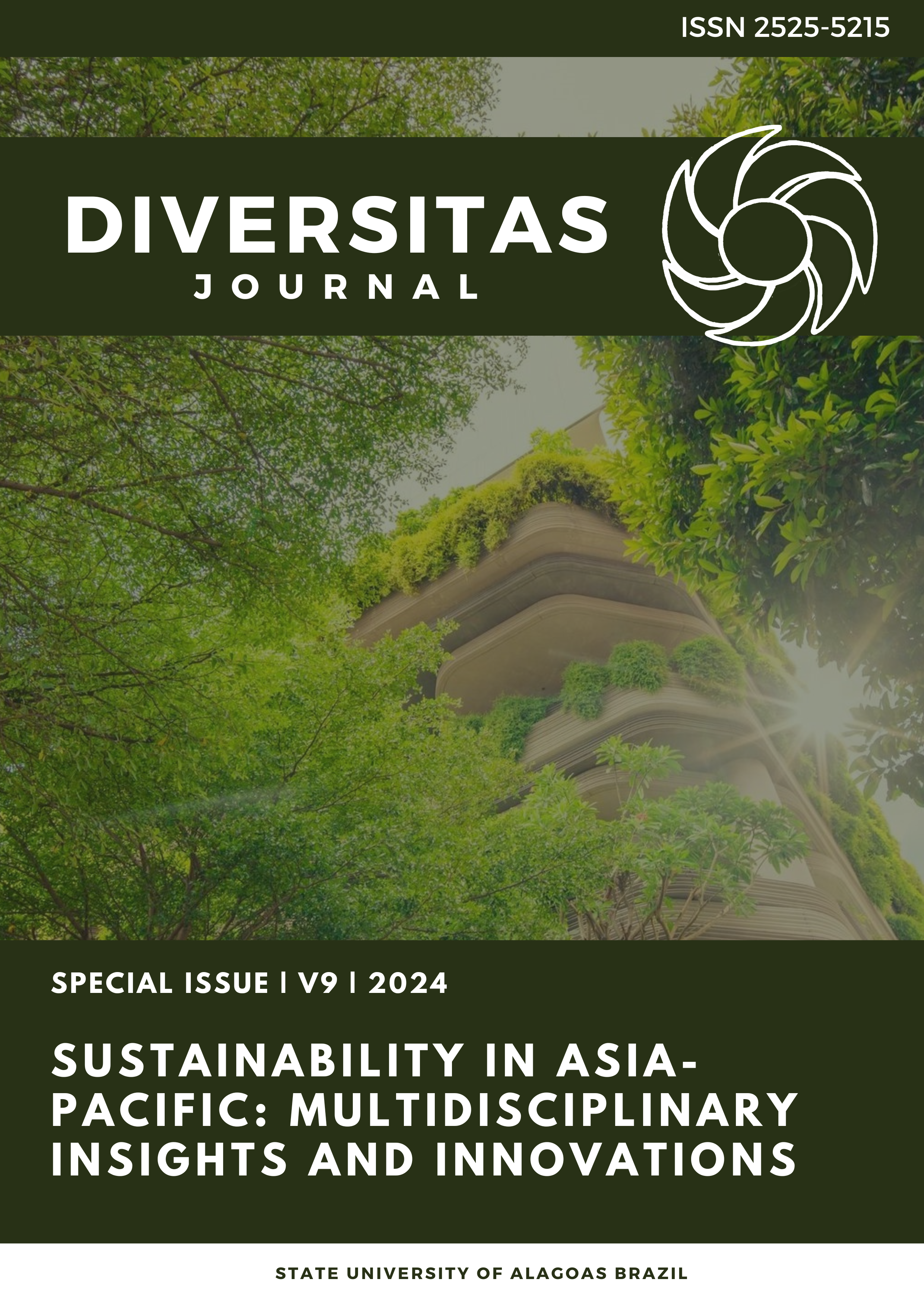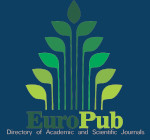Resiliência do Turismo na Região de CALABARZON Filipinas
DOI:
https://doi.org/10.48017/dj.v9i1_Special.2908Palavras-chave:
Resiliência do turismo, resiliência organizacional, Preparação para desastres, Recuperação do turismoResumo
Esta pesquisa explora a resiliência do turismo dos hotéis do resort na Região IV - A ou Calabarzon, que compreende 6 províncias, a saber, Cavite, Laguna, Batangas, Rizal e Quezon. Esta região é um dos pontos quentes do turismo nas Filipinas e também é suscetível a desastres como erupção vulcânica, terremoto, inundação de suas áreas costeiras e uma das áreas mais afetadas das Filipinas ao lado da região da capital nacional pela pandemia Covid-19. De acordo com o Plano de Desenvolvimento Regional de Calabarzon 2023-2028, preparado pela Autoridade Nacional de Desenvolvimento Econômico (NEDA), as crescentes perdas e danos causados por desastres ressaltam o imperativo de promover a resiliência nessa região. É importante medir a resiliência das empresas turísticas, pois é vital para determinar sua capacidade e capacidade de lidar e se recuperar dos impactos socioeconômicos causados por esses desastres. Um total de 101 estabelecimentos de acomodação credenciados do Departamento de Turismo (DOT) participaram do estudo que foram representados por seus respectivos gerentes. O pesquisador mediu o índice de resiliência do turismo da indústria hoteleira do resort da Região IV A (Calabarzon) usando seis (6) indicadores, a saber, resiliência operacional comercial, preparação para desastres, marketing, força de trabalho, uso de recursos nacionais e locais e acesso e conhecimento de recursos adotados Do índice de resiliência do turismo desenvolvido pelo Mississippi Alabama Sea Grand (MASGP) e pela Administração Nacional Oceânica e Atmosférica do Departamento de Comércio dos EUA (NOAA). Além disso, a comparação na avaliação de resiliência do turismo dos hotéis do resort quando agrupada de acordo com o perfil da empresa e o perfil dos gerentes foi analisada.
Métricas
Referências
Bichler, B. F., Petry, T., & Peters, M. (2021). We did everything we could: How employees’ made sense of COVID-19 in the tourism and hospitality industry. Current Issues in Tourism., 1–17. https://doi.org/10.1080/13683500.2021.1985974
Brown, N., Orchiston, C., Rovins, J., & Feldmann-Jensen, S. (2018). An integrative framework for investigating disaster resilience within the hotel sector. Journal of Hospitality and Tourism Management, 36,67–75. https://doi.org/10.1016/j.jhtm.2018.07.004
Brown, N., Rovins, J., Feldmann-Jensen, S., Orchiston, C., & Johnston, D. (2017). Exploring disaster resilience within the hotel sector: A systematic review of literature. International Journal of Disaster Risk Reduction, 22, 362–37 https://doi.org/10.1016/j.ijdrr.2017.02.005
Cahyanto, I., Kingsbury, A. J.,Widodo, E., Puspita, N. Y.,& Harnadi, A. (2021). Coping as a community: Recovery experiences of a tourismreliant area following a tsunami in Indonesia. International Journal of Tourism Research., 23, 928–941. https://doi.org/10.1002/jtr.2454
Cheer, J.M. and Lew, A.A. (2018). Understanding tourism resilience. In: Lew, A. A. and Cheer, J. M.(Eds.). Tourism resilience and adaptation to environmental change: Definitions and frameworks. New York: Routledge.
Choi, Y. E., Song, K., Kim, M., & Lee, J. (2017). Transformation planning for resilient wildlife habitats in ecotourism systems.Sustainability, 9, 487. https://doi.org/10.3390/su9040487
Chong, K. Y., & Balasingam, A. S. (2019). Tourism sustainability: Economic benefits and strategies for preservation and conservation of heritage sites in Southeast Asia. Tourism Review, 74, 268–279. https://doi.org/10.1108/TR-11-2017-0182
Cochrane, J. (2010). The sphere of tourism resilience. Tourism Recreation Research, 35, 173–185. https://doi.org/10.1080/02508281.2010.11081632
Conz, E., & Magnani, G. (2020). A dynamic perspective on the resilience of firms: A systematic literature review and a framework for future research. European Management Journal, 38(3), 400–412. https://doi.org/10.1016/j.emj.2019.12.004
CRED (Centre for Research on the Epidemiology of Disasters). 2020. “CRED Crunch 58 - Disaster Year in Review (2019).” Brussels: CRED.Disasters: An Overview of the Last 20 Years (2000-2019). Geneva: UNDRR.
Dayour, F., Adongo, C. A., Amuquandoh, F. E., & Adam, I. (2020b).Managing the COVID-19 crisis: coping and post-recovery strategies for hospitality and tourism businesses in Ghana. Journal of Hospitality and Tourism Insights. https://doi.org/10.1108/JHTI-08-2020-0150
Dayour, F., Adongo, C., & Kimbu, A. (2020a). Insurance uptake among small and medium-sized tourism and hospitality enterprises in a resource-scarce environment. Tourism Management Perspectives.,34, 100674. https://doi.org/10.1016/j.tmp.2020.100674
Department of Tourism (DOT). https://beta.tourism.gov.ph
Duchek, S. (2019). Organizational resilience: A capability-based conceptualization. Business Research, 13, 215–246.
Duchek, S., Raetze, S., & Scheuch, I. (2020). The role of diversity in organisational resilience: A theoretical framework. Business Research, 13(2), 387–423. https://doi.org/10.1007/s40685-019-0084-8
Dyachenko, Y.,Humenna,O., Zelenko, O.,&Ngabonziza, B. (2021). Role of creativity, innovations, digital and cognitive technologies for marketing of family, small and medium tourism businesses in regional economic development during and after Coronavirus pandemic. Almatourism-Journal of Tourism, Culture and Territorial Development, 12(23),199–219. https://doi.org/10.6092/issn.2036-5195/12330
Fyall, A., & Garrod, B. (2019). Destination management: A perspective article. Tourism Review, 75, 165–169. https://doi.org/10.1108/TR-07-2019-0311
Ghaderi, Z., Som, A. P. M., & Henderson, J. (2015). When disaster strikes: The Thai floods of 2011 and tourism industry response and resilience. Asia Pacific Journal of Tourism Research, 20, 399–415. https://doi.org/10.1080/10941665.2014.889726
Holladay, P., & Powell, R. (2016). Social-ecological resilience and stakeholders:A qualitative inquiry into community-based tourism in the Commonwealth of Dominica. Caribbean Studies, 44, 3–28. https://doi.org/10.1353/crb.2016.0000
Jamaliah, M., & Powell, R. (2018). Ecotourism resilience to climate change in Dana Biosphere Reserve, Jordan. Journal of Sustainable Tourism, 26, 519–536. https://doi.org/10.1080/09669582.2017.1360893
climate change? Marine Policy. https://doi.org/10.1016/j.marpol.2019.103636
Li, B., Zhong, Y., Zhang, T.,& Hua, N. (2021). Transcending the COVID- 19 crisis: Business resilience and innovation of the restaurant industry in China. Journal of Hospitality and Tourism Management, 49, 44–53. https://doi.org/10.1016/j.jhtm.2021.08.024
Mahadew, R., & Appadoo, K. A. (2018). Tourism and climate change in Mauritius: Assessing the adaptation and mitigation plans and prospects.Tourism Review, 74, 204–215. https://doi.org/10.1108/TR-12-2017-0203
Mair, J., Ritchie, B.,&Walters, G. (2016). Towards a research agenda for post-disaster and post-crisis recovery strategies for tourist destinations: A narrative review. Current Issues in Tourism, 19, 1–26. https://doi.org/10.1080/13683500.2014.932758
NEDA Region IV-A (2023). CALABARZON Regional Developmnet Plan 2023-2028. www.calabarzon.neda.gov.ph
Ngo, T., Lohmann, G., & Hales, R. (2020). Integrating the third way and third space approaches in a post-colonial world: Marketing strategies for the business sustainability of community-based tourism enterprises in Vietnam. Current Issues in Tourism, 23(15), 1914–1932. https://doi.org/10.1080/13683500.2019.1694494
Njoroge J, Ratter BMW, Atieno L, Mugabe I.(2018). Employing the enhanced regional tourism sustainable adaptation framework with a case study of climate change vulnerability in Mombasa, Kenya. Tourism and Hospitality Research 20:56-71. 10.1177%2F1467358418791353
Nuñez, S. M., & Musteen, M. (2020). Learning perspective on sustainable entrepreneurship in a regional context. Journal of Small Business and Enterprise Development. https://doi.org/10.1108/JSBED-03-2020-0071/full/html
Orchiston, C., Prayag, G., & Brown, C. (2016). Organizational resilience in the tourism sector. Annals of Tourism Research, 56, 128–163. https://doi.org/10.1016/j.annals.2015.11.002
Orhan, E. (2021). Disaster management of hotels: Empirical results from the lodging industry. Anatolia., 1–17. https://doi.org/10.1080/13032917.2021.1967174
Prayag, G. (2018). Symbiotic relationship or not? Understanding resilience and crisis management in tourism. Tourism Management Perspectives, 25, 133–135. https://doi.org/10.1016/j.tmp.2017.11.012
Prayag, G., Chowdhury, M., Spector, S., & Orchiston, C. (2018). Organizational resilience and financial performance. Annals of Tourism Research, 73(July), 193–196. https://doi.org/10.1016/j.annals.2018.06.006
Prayag, G., Spector, S., Orchiston, C., & Chowdhury, M. (2019). Psychological resilience, organizational resilience and life satisfaction in tourism firms: insights from the Canterbury earthquakes. Current Issues in Tourism, 23, 1216–1233. https://doi.org/10.1080/13683500.2019.1607832
Powell, R. B., Green, T. F., Holladay, P. J., Krafte, K. E., Duda, M.,Nguyen, et al. (2018). Examining community resilience to assist in sustainable tourism development planning in Dong Van Karst Plateau Geopark, Vietnam. Tourism Planning & Development, 15, 436–457. https://doi.org/10.1080/21568316.2017.1338202
Puri, M., Karanth, K., & Thapa, B. (2019). Trends and pathways for ecotourism research in India. Journal of Ecotourism, 18, 122–141. https://doi.org/10.1080/14724049.2018.1474885
Pyke, J., Law, A., Jiang, M., & De Lacy, T. (2018). Learning from the locals: The role of stakeholder engagement in building tourism and community resilience. Journal of
Ruhanen, L., Moyle, C., & Moyle, B. (2019). New directions in sustainable tourismresearch. TourismReview, 74, 138–149. https://doi.org/10.1108/TR-12-2017-0196
Sinha, R., & Ola, A. (2021). Enhancing business community disaster resilience. A structured literature review of the role of dynamic capabilities. Continuity and Resilience Review, 3(2), 132–148. https://doi.org/10. 1108/CRR-03-2021-0009
Steiner, A., & Atterton, J. (2015). Exploring the contribution of rural enterprises to local resilience. Journal of Rural Studies, 40, 30–45. https://doi.org/10.1016/j.jrurstud.2015.05.004
UNDRR (2012). Disaster risk and resilience: UN system task team on the post 2015 UN development agenda. Retrieved from: https://www.un.org/en/development/desa/policy/untaskteam_undf/thinkpieces /3_disaster_risk_resilience.pdf
UNDRR. (United Nations Office for Disaster Risk Reduction) (2020). The Human Cost of
van der Veeken, S., Calgaro, E., Klint, L. M., Law, A., Jiang, M., de Lacy, T., & Dominey-Howes, D. (2016). Tourism destinations’ vulnerability to climate change: Nature-based tourism in Vava’u, the Kingdom of Tonga. Tourism and Hospitality Research, 16, 50–71. https://doi.org/10.1177/1467358415611068
Williams, T. A., Gruber, D. A., Sutcliffe, K. M., Shepherd, D. A., & Zhao, E. Y. (2017). Organizational response to adversity: Fusing crisis management and resilience research streams. Academy of Management Annals, 11(2), 733–769. https://doi.org/10.5465/annals.2015.0134
Zhai, Y., & Shi, P. (2021). The evolutionary characteristics, driving mechanism, and optimization path of China’s tourism support policies under COVID-19: A quantitative analysis based on policy texts. Current Issues in Tourism, 7, 1–6. https://doi.org/10.1080/13683500.2021.1972942
Downloads
Publicado
Como Citar
Edição
Seção
Licença
Copyright (c) 2024 Rosan Olalia

Este trabalho está licenciado sob uma licença Creative Commons Attribution 4.0 International License.
O periodico Diversitas Journal expressa que os artigos são de unica responsabilidade dos Autores, conhecedores da legislação Brasileira e internacional. Os artigos são revisados pelos pares e devem ter o cuidado de avisar da possível incidencia de plagiarismo. Contudo o plagio é uma ação incontestavel dos autores. A Diversitas Journal não publicará artigos com indicios de Plagiarismos. Artigos com plagios serão tratados em conformidade com os procedimentos de plagiarismo COPE.
A violação dos direitos autorais constitui crime, previsto no artigo 184, do Código Penal Brasileiro:
“Art. 184 Violar direitos de autor e os que lhe são conexos: Pena – detenção, de 3 (três) meses a 1 (um) ano, ou multa. § 1o Se a violação consistir em reprodução total ou parcial, com intuito de lucro direto ou indireto, por qualquer meio ou processo, de obra intelectual, interpretação, execução ou fonograma, sem autorização expressa do autor, do artista intérprete ou executante, do produtor, conforme o caso, ou de quem os represente: Pena – reclusão, de 2 (dois) a 4 (quatro) anos, e multa.”















.png)




